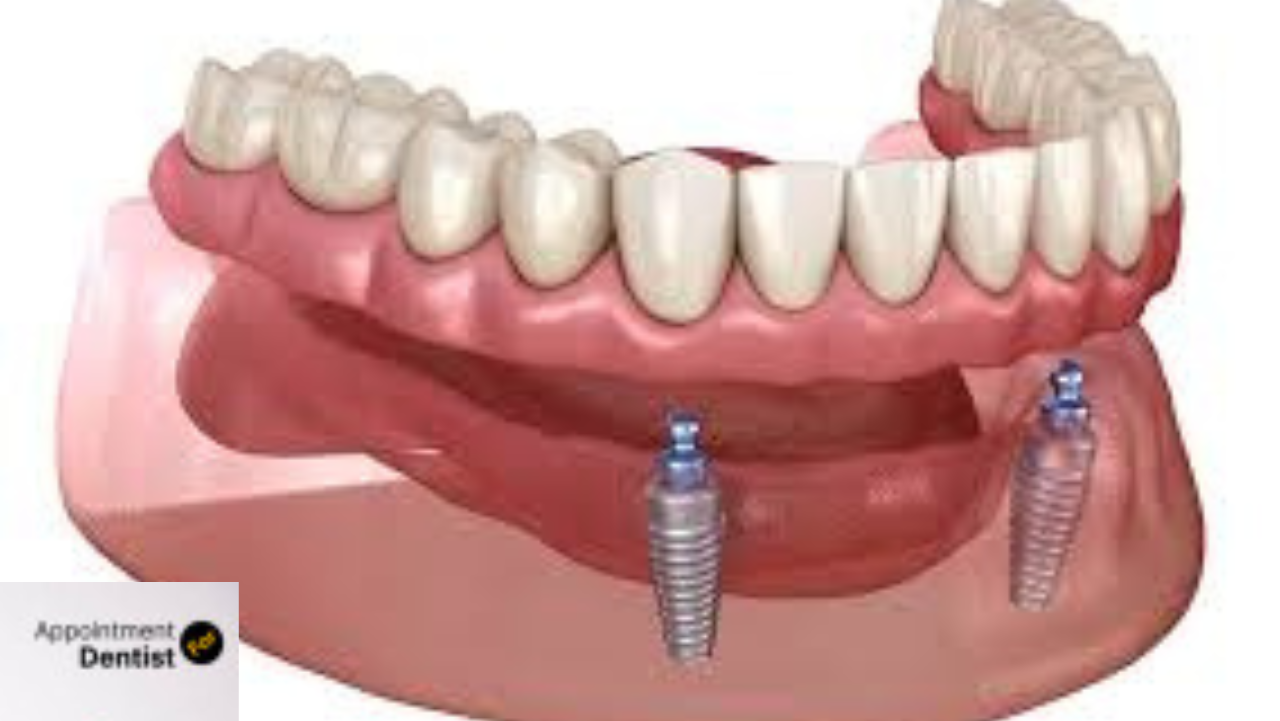The Benefits of Dental Implants Over Dentures
Posted on June 12, 2024 by Admin

The Benefits of Dental Implants Over Dentures
For individuals with missing teeth, restoring their smile and oral function is essential for overall well-being and confidence. While traditional dentures have long been a popular option for tooth replacement, dental implants offer several advantages that make them a superior choice for many patients. In this blog post, we'll explore the benefits of dental implants over dentures, highlighting their effectiveness in restoring aesthetics, function, and oral health.

Enhanced Aesthetics:
One of the primary benefits of dental implants is their ability to closely mimic the appearance of natural teeth. Unlike dentures, which sit on top of the gums and can appear bulky or artificial, dental implants are surgically placed in the jawbone and topped with life like porcelain crowns that blend seamlessly with the surrounding teeth. This results in a more natural-looking smile that enhances facial aesthetics and boosts confidence.
Improved Stability and Function:
Dental implants offer superior stability and function compared to traditional dentures. Because implants are anchored directly into the jawbone, they provide a strong and stable foundation for chewing, biting, and speaking. This allows patients to enjoy a wider variety of foods without worrying about slippage or discomfort, leading to improved nutrition and overall quality of life.
Long-Term Durability:
While traditional dentures may need to be replaced or adjusted every few years due to changes in the jawbone and wear and tear, dental implants are designed to last a lifetime with proper care. This makes them a cost-effective investment in the long run, as they eliminate the need for frequent replacements and maintenance associated with dentures.
Preservation of Jawbone Health:
When a tooth is lost, the underlying jawbone begins to deteriorate over time due to lack of stimulation from the tooth root. This can lead to bone loss and changes in facial structure, giving the appearance of premature aging. Dental implants help preserve jawbone health by acting as artificial tooth roots that stimulate bone growth and prevent further deterioration. This not only maintains facial aesthetics but also ensures the longevity of surrounding teeth and oral health.

Enhanced Comfort and Convenience:
Dental implants offer unparalleled comfort and convenience compared to traditional dentures. Unlike removable dentures, which can cause irritation and soreness from friction against the gums, implants feel like natural teeth and integrate seamlessly into daily life. There's no need for messy adhesives or nightly removal, allowing patients to enjoy a comfortable and hassle-free experience.
Improved Speech:
Another benefit of dental implants is their ability to improve speech clarity and pronunciation. Traditional dentures may slip or click while speaking, causing speech impediments and embarrassment. Dental implants provide a stable and secure foundation for articulation, allowing patients to speak confidently and clearly without fear of slippage or discomfort.
Conclusion:
While both dental implants and dentures are viable options for tooth replacement, the benefits of dental implants far outweigh those of traditional dentures. From enhanced aesthetics and function to long-term durability and oral health preservation, dental implants offer a superior solution for restoring smiles and confidence. If you're considering tooth replacement options, consult with your dentist to determine if dental implants are right for you.
Faqs
-
1. What Are Dental Implants?
Dental implants are artificial tooth roots made of titanium that are surgically placed into the jawbone to support a replacement tooth, bridge, or denture. They provide a permanent, stable foundation for artificial teeth.
-
2. What Are Dentures?
Dentures are removable replacements for missing teeth and surrounding tissues. They come in two types: complete dentures for replacing all teeth and partial dentures for replacing some teeth.
-
3. What Are the Benefits of Dental Implants Over Dentures?
Most people can get dental implants, but candidates need sufficient bone density and healthy gums. Those with certain medical conditions or who smoke may require additional evaluation to determine their suitability.
-
4. What is the Procedure for Getting Dental Implants?
The implant process involves several steps: initial consultation and planning, surgical placement of the implant, a healing period for osseointegration (where the implant fuses with the jawbone), and placement of the final crown or prosthetic. The entire process can take several months.
-
5. Are Dental Implants More Expensive Than Dentures?
Dental implants generally have a higher initial cost compared to dentures. However, considering their durability and the long-term benefits, they can be more cost-effective over time.
Recent Post
- The Importance of Oral Health Education for Children
- How to Choose the Right Orthodontic Treatment for Adults
- The Link Between Oral Health and Stroke Risk
- How to Address and Prevent Gum Recession
- Innovations in Dental Anesthesia: Pain-Free Procedures
- The Role of Saliva in Oral Health: Functions and Disorders
- Exploring Holistic Dentistry: What You Need to Know
- How Oral Health Affects Your Immune System
- The Benefits of Using Dental Probiotics
- Oral Health and Pregnancy: Myths and Facts